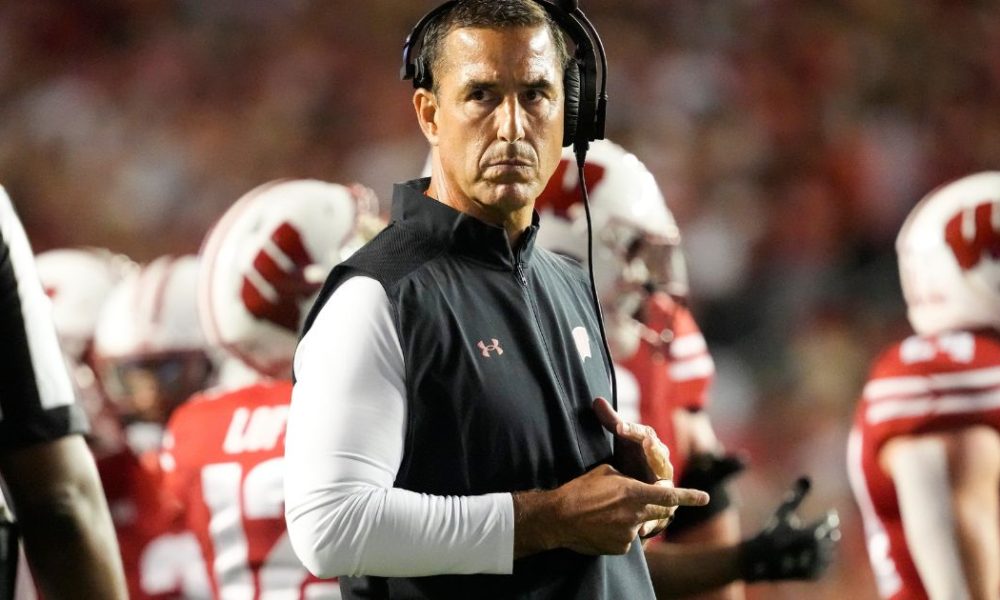NIL
Luke Fickell addresses potential roster limits, impact on players
Last week, the attorneys representing the NCAA and power conferences agreed to a revised plan to phase in roster limits as part of a revised House v. NCAA settlement before Judge Claudia Wilken in the U.S. Northern Districk Court of California. The proposal, which would effectively grandfather all current student-athletes and any that were preemptively […]

Last week, the attorneys representing the NCAA and power conferences agreed to a revised plan to phase in roster limits as part of a revised House v. NCAA settlement before Judge Claudia Wilken in the U.S. Northern Districk Court of California. The proposal, which would effectively grandfather all current student-athletes and any that were preemptively cut before the settlement was finalized, would appear to satisfy Wilken’s request last month.
And while Wilken is currently considering the revised proposal, if approved, the House v. NCAA settlement would pave the way for revenue-sharing between NCAA schools and student-athletes, with some programs able to share between $20-22 million annually, or 22-percent of the average Power Five school’s annual revenue, along with approximately $2.75 billion in back damages to former college athletes over a 10-year span. It would also mean strict roster limits in football (105), men’s and women’s basketball (15), baseball (34), softball (25), men’s and women’s soccer (28) and volleyball (18).
But, at least for any coaches concerned about having to cut players three months before the start of the 2025-26 academic school year, the amended settlement would seem to be a welcomed relief. Wisconsin head coach Luke Fickell, for one, explained the complicated balancing act football coaches have faced in recent months amid the ongoing uncertainty about the true impact of the settlement.
“I think the hardest thing about that is (that there are) some of the guys within your program that even in the winter we had some conversations with to say, ‘Hey, I don’t know what this thing is going to go to. If it goes to 105, we’re going to have to make some tough decisions.’ So there are some guys I think that could be looming in their head,” Fickell said last month during Spring practice. “If they do make this decision and it does come down and it is across the board, meaning everybody is going to have to conform to it, and there’s going to be obviously somebody paying attention and making sure everybody is on the same page. Then we’ll address that.
“(But) no, we can’t go about doing the things and building the things expecting to have to cut down, but I know that could be difficult on some guys that are curious what’s going to happen, and what their opportunities are going to be.”
Fickell admitted many of those conversations have already taken place at Wisconsin, though no definitive decisions will be made until the settlement has been approved and guidance is provided to programs.
“We have. And just trying to be forthright, … we care about all these kids, especially the guys that have been here for a while. If and when they do go to that, there’s going to have to be some tough decisions made. And it’s not going to be easy,” Fickell continued. “We don’t know the parameters to it all, we don’t know what that entails. Can guys be in waiting, can they still be apart of some things? We have no idea. So for us to jump too far ahead other than just being really honest and open with guys, and making sure they know what we feel and where we are with things, but not making any decisions.”
The devil is in the details, and until Wilken officially approves all parts of the revised House v. NCAA settlement, college football coaches like Fickell remain in wait-and-see mode.
— On3’s Pete Nakos and Nick Schultz contributed to this report.